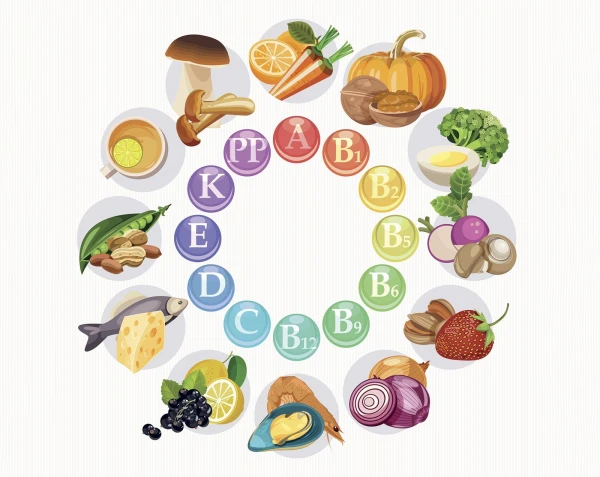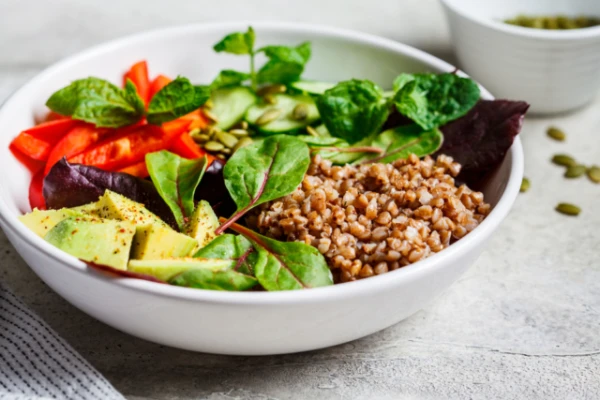
Over time, much changes in our lives: we sleep less, move less, and pay less attention to our diet. In these conditions, it is important to adjust vitamin intake to maintain health and activity at every stage of life.
Up to 35 Years
Youth is a period of high activity, and most people do not count the milligrams of each vitamin. However, there are substances worth paying attention to.
Vitamin E
Necessary for sperm production in men and for conception and carrying a pregnancy in women. Vitamin E is also a powerful antioxidant.
- Benefits: Studies show that 400–800 IU of natural vitamin E per day reduces the risk of cardiovascular diseases by 25–30% and improves cognitive functions by 36%. Among men taking supplements, the risk of prostate cancer is 32% lower.
- Where to find it: vegetable oils (sunflower 42–56 mg/100 g, soybean 114 mg/100 g, peanut and mustard 33–34 mg/100 g, olive 13 mg/100 g), seeds, sprouts, leafy greens.
Vitamin B9 (Folic Acid)
Key for the development of the brain and nervous system in the embryo.
- Benefits: A deficiency in a breastfeeding woman can affect the development of the child's nervous system. Adults need this vitamin for the normal functioning of the hematopoietic, digestive, and nervous systems.
- Where to find it: green leaves (lettuce, spinach, broccoli, Brussels sprouts, asparagus), liver (beef, pork, cod liver), whole grains, legumes, yeast.
35–45 Years
A period of stability, but the first wrinkles and health problems may already appear.
Vitamin A and Beta-Carotene
Necessary for the health of skin, eyes, hair, and nails, as well as for cell division.
- Benefits: Beta-carotene reduces the risk of cardiovascular diseases; vitamin A increases the activity of immune cells.
- Where to find it: vitamin A — animal products (eggs, butter, offal), beta-carotene — yellow and orange vegetables, greens.
- Important: Excess vitamin A is dangerous, so it is not advisable to exceed 900 mcg without consulting a doctor.
Vitamin C
The older we get, the more important ascorbic acid becomes.
- Benefits: Increases levels of "good" cholesterol, lowers "bad" cholesterol, reduces the risk of stroke, improves collagen production, slows down the appearance of wrinkles, and strengthens bones.
- Where to find it: raw cabbage (white cabbage 150 g, cauliflower 100 g), some vitamin is destroyed during heat treatment.
45+
With age, it becomes more important to maintain the health of bones, heart, and blood vessels.
Vitamin D
- Benefits: Necessary for calcium absorption and maintaining bone density, reduces the risk of cardiovascular diseases, atherosclerosis, and some types of cancer.
- Where to find it: synthesized by the skin under sunlight (5–15 minutes a day on the face and hands), fish oil, egg yolks, supplements 200–400 IU.
Vitamin K
- Benefits: Important for blood clotting and the mineralization of bones and teeth; its deficiency manifests as bags and bruises under the eyes.
- Where to find it: synthesized by intestinal bacteria, but absorption worsens with age. It is recommended to eat more spinach, veal, and liver (at least 2 servings a day).















Leave a comment